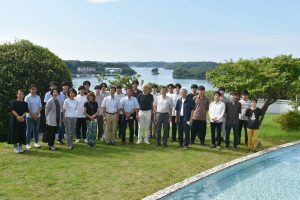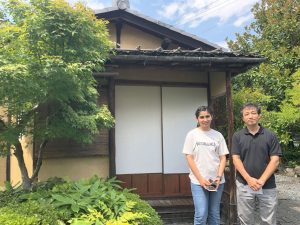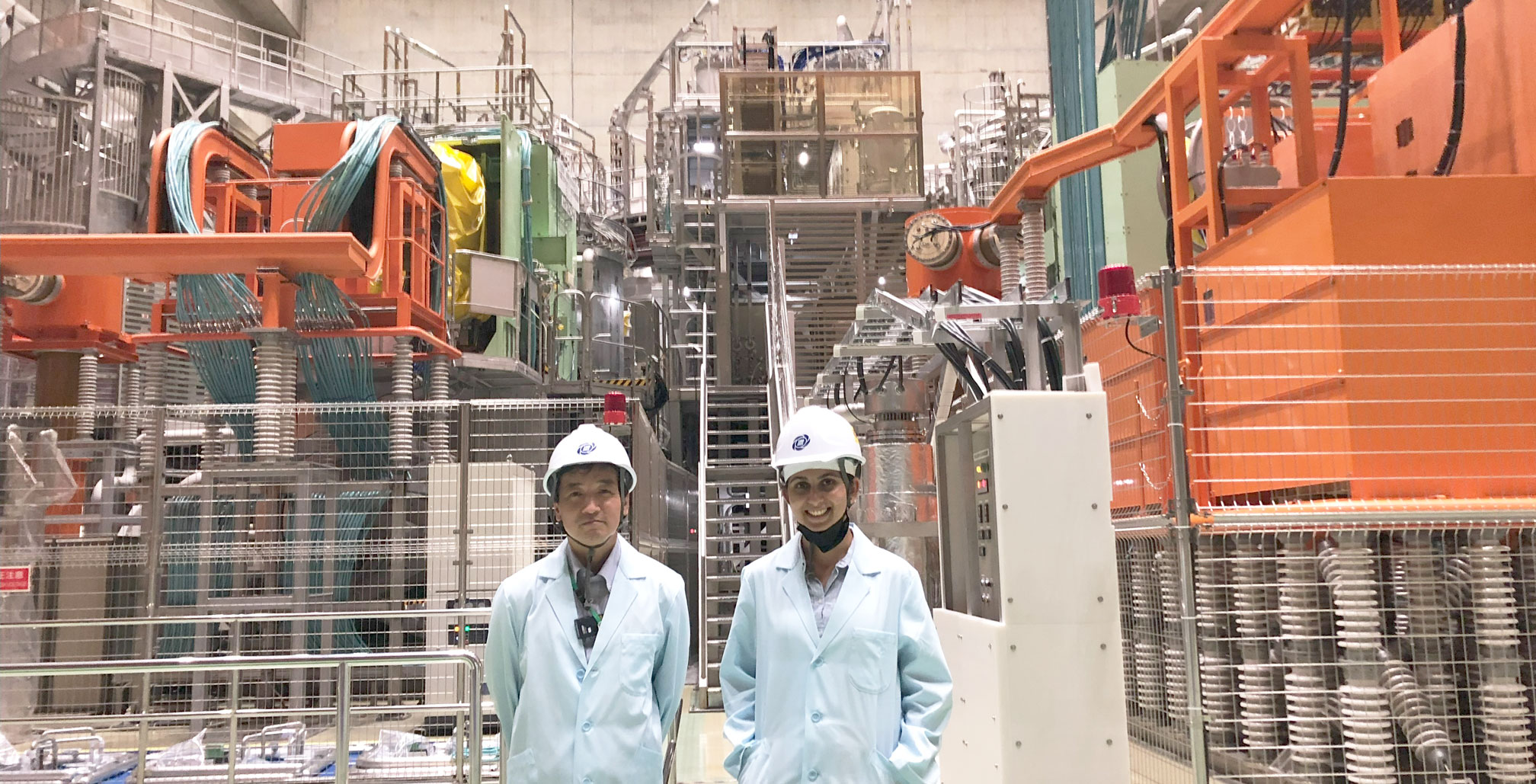Information of the Applicant from German University:
- Max-Planck-Institute for Plasma Physics, Greifswald, Germany
Duration of Stay:
- August 1 to August 26, 2022
Aims:
- Building a new research network in Kyoto University
- Understanding magnetic confinement machine relevant physics
Visited Researchers and Institutions in Japan:
- Prof. Dr. Kazunobu Nagasaki, Institute of Advanced Energy, Kyoto University
- Laboratory for Complex Energy, Institute of Advanced Energy, Kyoto University
- National Institute for Fusion Science
Motivation for Kyoto-DAAD Programme
Experience of a new research environment at the state-of-the-art research facility in Kyoto
The motivation for the Kyoto-DAAD program is to build a research network at Kyoto University and experience a new research environment at the state-of-the-art research facility in Kyoto. The research motivation was to perform comparative studies of the W7-X (Greifswald, Germany) and Heliotron-J (Kyoto University), as they are low-shear magnetic confinement devices, which leads to an easier access to the iota scan experiments. Hence, these devices are suitable candidates for a comparative investigation of plasma confinement and transport concerning different magnetic configurations, contributing to the magnetic confinement physics field.
Achievements and Outcomes of ECRs’ Stay
The exposure to the different styles of research environments in Japan
The research stays at the Laboratory for Complex Energy Institute of Advanced Energy, Kyoto University enabled me to gain new skills related to electron cyclotron emission and data analysis through exchanging ideas with other expert researchers, Prof. K. Nagasaki and Prof. Inagaki and others at the laboratory. This experience adds to the exposure to the different styles of research environments in Japan. Additionally, another exciting aspect of the stay was to experience and learn about the work-life balance of researchers in Japan.
Outlook for the Project
The project’s outlook would be to establish and expand the research network at Kyoto University with further collaborations during future experiments on confinement, transport and MHD stability in stellarator/heliotron devices. Additionally, I would implement the enhanced knowledge of different approaches towards research and the respective acquired research skills during my stay at Kyoto University into my research carrier. The short-term stay has prompted new research prospects and ideas through different data analysis approaches in magnetic confinement physics.


![[間:AI DA]: supporting international carrier development of early career researchers (ECRs)](/exchange/aida/wp-content/themes/kyoto-u-daad/img/logo-aida.png)



